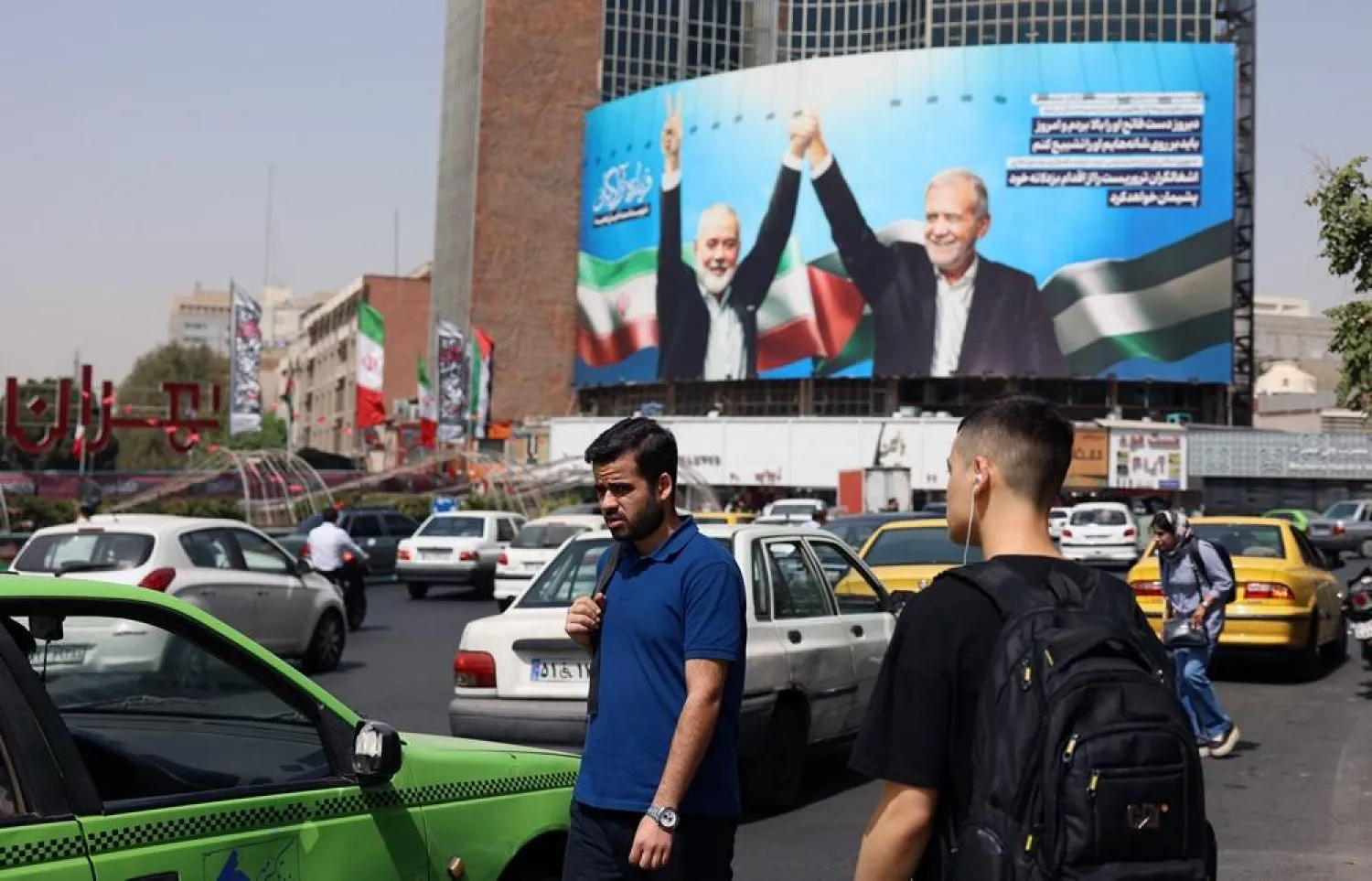The United States has been urging other countries through diplomatic channels to tell Iran that escalation in the Middle East is not in their interest, a State Department spokesperson said on Monday, at what Secretary of State Antony Blinken called a "critical moment" for the region.
Blinken said Washington was "engaged in intense diplomacy, pretty much around the clock" to help calm tensions amid fears Iran is preparing a retaliatory strike against Israel.
"All parties must refrain from escalation," Blinken said during a signing ceremony with his Australian counterpart in Washington.
"All parties must take steps to ease tensions. Escalation is not in anyone's interests. It will only lead to more conflict, more violence, more insecurity."
Hamas leader Ismail Haniyeh was assassinated in the Iranian capital Tehran last week, an attack that drew threats of revenge on Israel and fueled further concern that the conflict in Gaza was turning into a wider Middle East war.
Iran has blamed Israel and said it will "punish" it; Israeli officials have not claimed responsibility for the killing. Iran backs Hamas, which is at war with Israel in Gaza, and also the Lebanese group Hezbollah, whose senior military commander Fuad Shukr was killed in an Israeli strike on Beirut last week.
US President Joe Biden and Vice President Kamala Harris were briefed by their national security team on the situation in the Middle East, including threats posed by Iran and its proxies to Israel and US servicemembers, the White House said. They were also briefed about an attack on Iraq's al Asad airbase on Monday and discussed the US response.
During that briefing, Biden and Harris were told by their national security team that it is still unclear when Iran and Hezbollah are likely to launch an attack against Israel "and the specifics of such an attack," according to a US official.
At least five US personnel were wounded in the rocket strike, US officials told Reuters. It was unclear whether the attack was linked to threats by Iran to retaliate over Haniyeh's killing, in which the US said it had no involvement.
Biden and Harris were also updated on US efforts to support Israel militarily if it is attacked and diplomatic efforts to "de-escalate regional tension" and reach a ceasefire and hostage-release deal in Gaza.
Blinken earlier on Monday spoke with Qatari Prime Minister Sheikh Mohammed bin Abdulrahman Al Thani and Egyptian Foreign Minister Badr Abdelatty.
"One of the points of the engagements that we have had is to urge countries to pass messages to Iran and urge countries to make clear to Iran that it is very much not in their interests to escalate this conflict, that it is very much not in their interest to launch another attack on Israel," said State Department spokesperson Matthew Miller.
Miller, speaking at a press briefing, did not say definitively whether or not Washington's messages have been disseminated to Iran or through which channel.
"I would expect that some of them would pass that message along and impress that point upon the government of Iran," he added.
Blinken in his remarks also called for parties to "break this cycle" of violence and agree a ceasefire in the Gaza conflict, despite the killing of Haniyeh, who was a key figure in the negotiations between Israel and Hamas.
"What it comes down to really is all parties finding ways to come to an agreement, not look for reasons to delay or to say no," Blinken said. "It is urgent that all parties make the right choices in the hours and days ahead."









